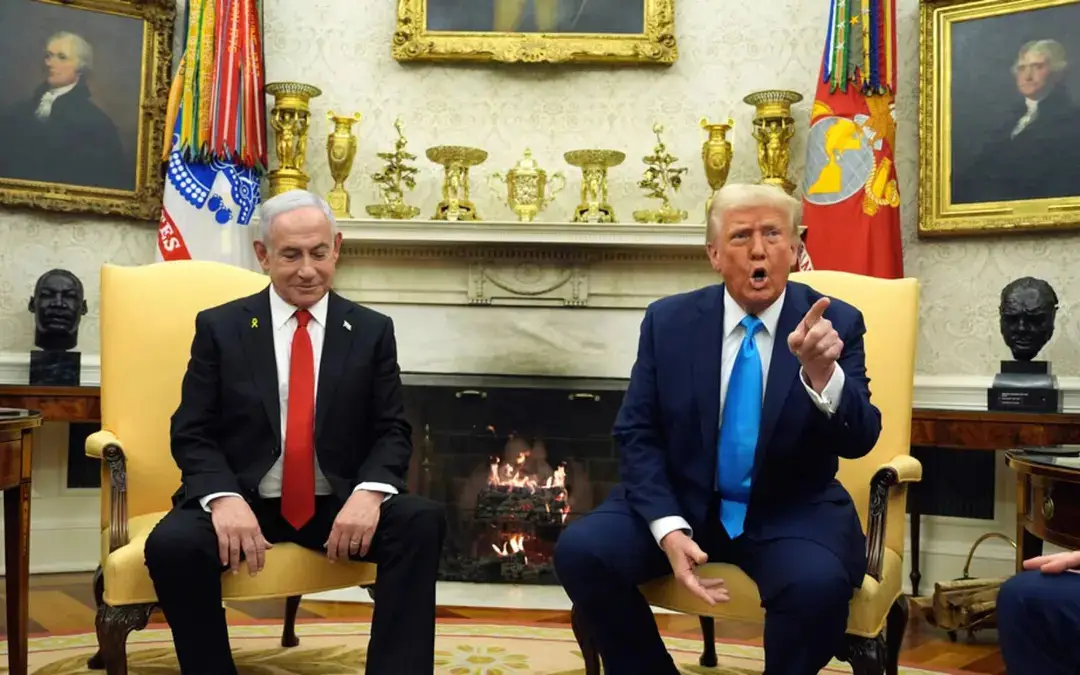There hasn’t been a specific “Trump Gaza plan” officially proposed or implemented. However, if we consider hypothetical scenarios or past policies associated with the Trump administration, we can analyze how certain approaches to the Israeli-Palestinian conflict, particularly regarding Gaza, might backfire. Here are some potential ways such a plan could have unintended consequences:
Table of Contents
1. One-Sided Support for Israel
- If a plan heavily favors Israel without addressing Palestinian grievances, it could deepen resentment among Palestinians and fuel further radicalization. This could lead to increased violence, including rocket attacks from Gaza or unrest in the West Bank.
- The international community, particularly Arab nations, might view the plan as biased, undermining U.S. credibility as a neutral mediator.
2. Ignoring Hamas’s Role
- Any plan that excludes or marginalizes Hamas, which controls Gaza, is unlikely to succeed. Hamas has significant influence in the region, and sidelining them could lead to increased instability.
- Without engaging Hamas or addressing their concerns, the group might escalate hostilities to assert its relevance, leading to more conflict.
3. Economic Measures Without Political Solutions
- If the plan focuses solely on economic incentives (e.g., aid or investment) without addressing core political issues like borders, sovereignty, or the right of return for refugees, it could be seen as an attempt to “buy off” Palestinians.
- This approach might fail to gain traction among Palestinians, who view their struggle as fundamentally political rather than economic.
4. Undermining Palestinian Authority (PA)
- If the plan weakens the PA by sidelining it or cutting aid, it could further destabilize the West Bank and strengthen Hamas’s position in Gaza.
- A weakened PA might lose its ability to maintain security coordination with Israel, leading to increased violence.
5. Regional Backlash
- A plan perceived as unfair to Palestinians could strain U.S. relations with Arab allies, particularly those that have normalized relations with Israel (e.g., UAE, Bahrain). These countries face domestic pressure to support Palestinian rights.
- It could also embolden Iran and its proxies, who often use the Palestinian cause to rally support against the U.S. and Israel.
6. Humanitarian Crisis in Gaza
- If the plan includes measures that restrict aid or resources to Gaza, it could exacerbate the already dire humanitarian situation. This might lead to widespread suffering, further radicalization, and international condemnation.
- A worsening crisis in Gaza could trigger mass protests or even another intifada, destabilizing the region further.
7. Undermining Two-State Solution
- If the plan abandons the two-state solution or promotes annexation of parts of the West Bank, it could close the door to a negotiated settlement, making long-term peace even more elusive.
- This might lead to increased international isolation for Israel and the U.S., with potential sanctions or diplomatic repercussions.
8. Domestic Political Fallout
- In the U.S., a plan seen as overly favorable to Israel or dismissive of Palestinian rights could alienate progressive Democrats and other groups sympathetic to the Palestinian cause.
- This could deepen political polarization and complicate U.S. foreign policy efforts in the Middle East.
Conclusion
Any plan for Gaza or the broader Israeli-Palestinian conflict must address the root causes of the conflict and involve all relevant stakeholders. A one-sided or overly simplistic approach is likely to backfire, leading to increased violence, regional instability, and further erosion of U.S. influence in the Middle East. A sustainable solution requires balancing the security concerns of Israel with the legitimate aspirations of the Palestinian people.
If you have a specific plan or proposal in mind, feel free to share more details, and I can provide a more tailored analysis!



